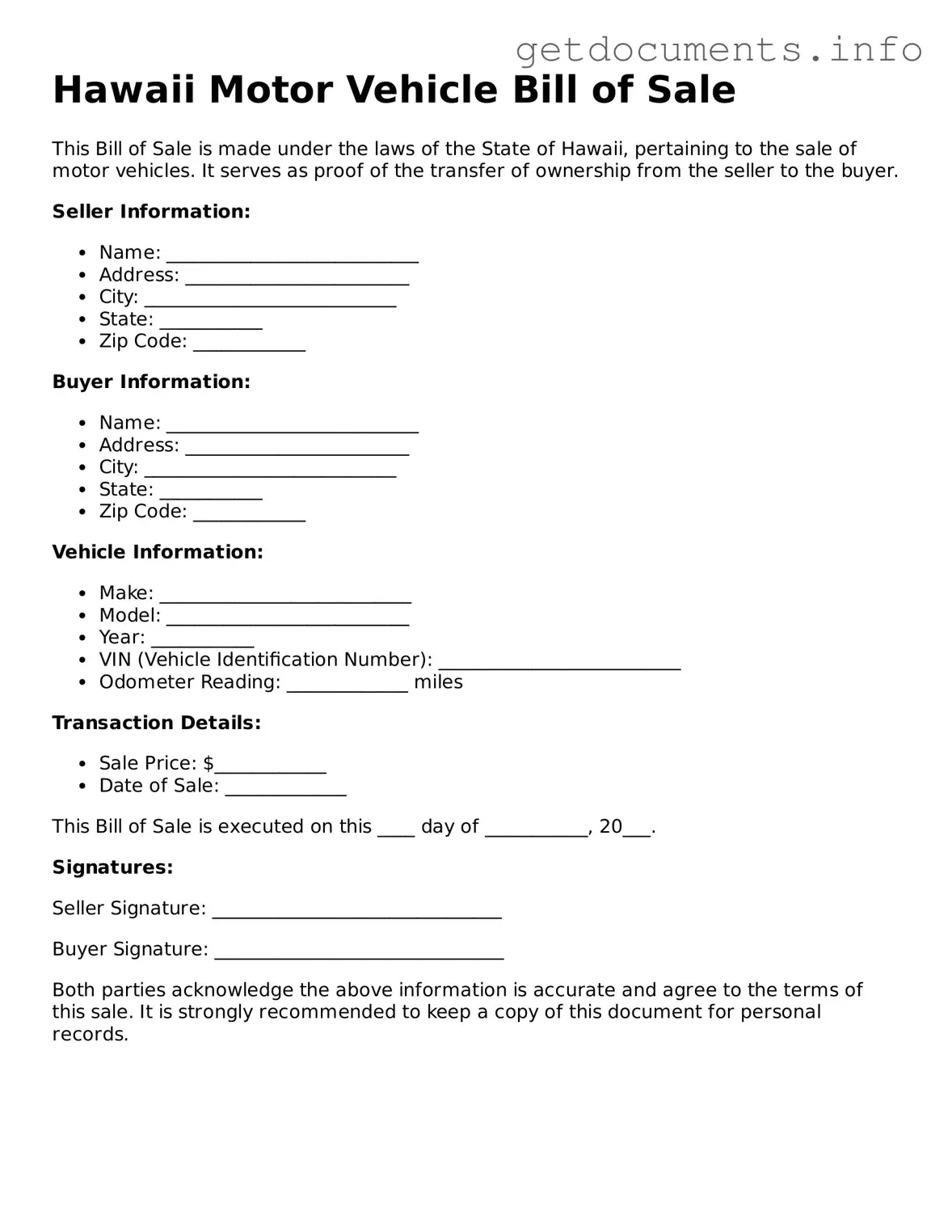Free Motor Vehicle Bill of Sale Template for Hawaii
The Hawaii Motor Vehicle Bill of Sale form is a legal document that records the transfer of ownership of a vehicle from one party to another. This form serves as proof of the transaction and includes important details such as the vehicle's make, model, and identification number. To ensure a smooth transfer, it is essential to fill out this form accurately.
To get started, click the button below to fill out the form.
Access Motor Vehicle Bill of Sale Editor

Free Motor Vehicle Bill of Sale Template for Hawaii
Access Motor Vehicle Bill of Sale Editor
Got places to be? Complete the form fast
Fill out Motor Vehicle Bill of Sale online and avoid printing or scanning.
Access Motor Vehicle Bill of Sale Editor
or
⇩ PDF File
